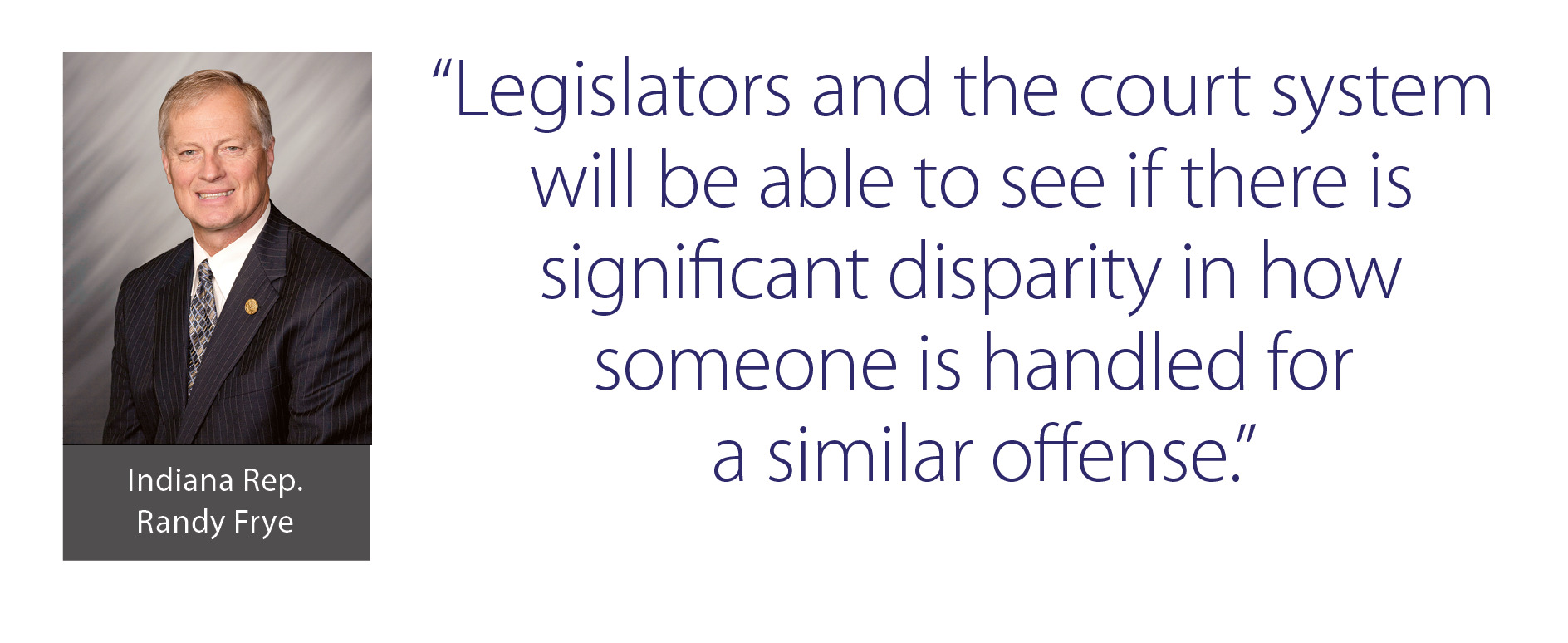New state laws, court initiatives identify better data sharing as path to better policymaking in justice system
When a county in Indiana Rep. Randy Frye’s district proposed a tax increase to build a new jail in order to relieve overcrowding, his constituents balked. After noticing their opposition to the tax increase, he wanted to get to the root of the issue.
“The question was, Why is the jail overcrowded? And when I went to find out, there wasn’t any data available, it’s always an opinion,” Frye says. “I didn’t feel like I could competently address the issue.”
Since most data were collected by cities and counties, and not shared between jurisdictions, it wasn’t there for a statewide view. So he introduced HB 1346, which became law in March and requires all Indiana jails to contribute to a new database that measures who is in jail, why they are there, and for how long.
“Legislators and the court system will be able to look at the data and be able to see if there is significant disparity from county to county in how someone is handled for a similar offense, how long the sentence is vs. the other 91 counties,” Frye says. “We also need to know how long folks are in jail before their case comes to trial, how long were they in jail before they saw a public defender if they couldn’t afford an attorney.”
“Those are facts that we don’t have today.”
That pursuit of facts, through data collection, to inform decision-making on criminal justice policy has led to a series of actions in the Midwest’s states.
Last year, for example, Iowa legislators established a Justice Advisory Board (HF 634) whose duties include providing for a “clearinghouse of justice system information” and assisting policymakers in using the data.

In North Dakota, law enforcement agencies must now share information on cases involving “missing and murdered indigenous people” (the result of HB 1313), and the state Supreme Court and Department of Human Services are sharing data to better serve youths involved in the juvenile justice and child welfare systems.
Five years ago, Nebraska lawmakers created a new legislative Committee on Justice Reinvestment Oversight. It collects and analyzes data from counties and relevant state agencies to monitor the performance of the state’s justice system. (This committee was established by LB 605, a bill that came out of work led in part by The Council of State Governments’ Justice Center.)
Illinois, meanwhile, will begin to track how many people are in the state’s county jails, how long they are in jail, and how quickly dockets are cleared. Illinois Supreme Court Chief Justice Anne Burke proposed this kind of tracking system earlier this year, and the General Assembly approved the $1.6 million request in its budget. Other examples from the Midwest include:
- An initiative in South Dakota that, for several years, has allowed county sheriffs and other law enforcement agencies to share information and track records in a comprehensive way.
- Wisconsin’s Criminal Justice Coordinating Council, whose work includes mapping existing criminal justice data systems and identifying opportunities for improvement.
- The Ohio Supreme Court’s disbursement of grants (via the state’s Courts Technology Initiative) to improve data sharing and collection.